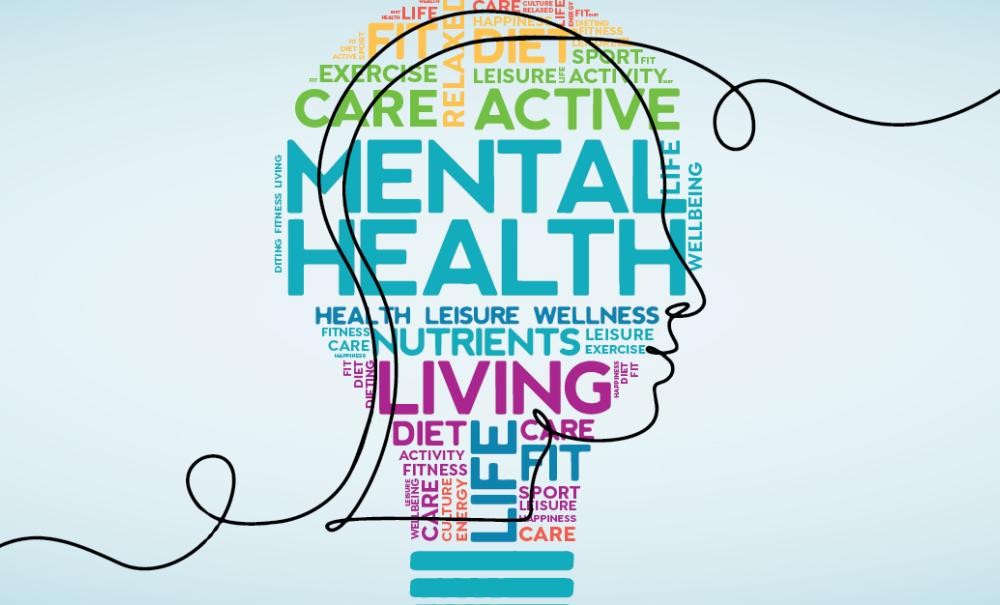Mind Matters: Understanding the Importance of Mental Health

In today’s fast-paced world, conversations around physical health are common and well-accepted, yet when it comes to mental health, silence still prevails. Mental health is not just the absence of mental illness; it is the presence of emotional well-being, psychological resilience, and the ability to cope with life's daily stresses. Understanding and acknowledging the importance of mental health is essential not just for individuals but for society at large. This blog explores why mental health matters and how seeking help from professionals—like a psychiatrist in Dehradun—can be a transformative step towards healing and holistic well-being.
What is Mental Health?
Mental health encompasses our emotional, psychological, and social well-being. It affects how we think, feel, and act. It influences how we handle stress, relate to others, and make decisions. Just as our physical body needs nourishment and care, our mind also requires attention, rest, and sometimes, professional help.
Good mental health doesn’t mean always being happy. Rather, it means being able to experience a wide range of emotions and manage them effectively. When mental health is neglected, it can lead to serious consequences—ranging from chronic stress and anxiety to debilitating conditions like depression, bipolar disorder, or addiction.
The Stigma Around Mental Health in India
Despite progress in awareness, mental health in India continues to be shrouded in stigma. People often hesitate to talk about their emotional struggles due to fear of judgment, rejection, or being labeled as “weak” or “mad.” This cultural taboo prevents individuals from seeking timely help and results in conditions worsening over time.
The good news is that the narrative is slowly changing. More individuals and institutions are opening up about the reality of mental illness, and professionals such as a psychiatrist in Dehradun are playing a crucial role in creating safe, judgment-free spaces for people to seek help and begin their healing journeys.
Why Mental Health Should Be a Priority
Improves Quality of Life
Mental well-being directly contributes to overall life satisfaction. When the mind is healthy, people are more productive, focused, and capable of building and maintaining meaningful relationships.Enhances Physical Health
The mind and body are deeply connected. Mental health disorders like stress and anxiety can lead to physical ailments such as high blood pressure, insomnia, and a weakened immune system.Boosts Work Performance
Employees with good mental health are more efficient, creative, and resilient. Companies that support mental wellness have higher retention rates and more motivated staff.Strengthens Coping Mechanisms
Life is unpredictable. Loss, failure, or trauma can strike at any time. A strong mental foundation helps individuals navigate such challenges without breaking down.Promotes Social Harmony
Mental health issues can lead to social withdrawal, irritability, or aggression, affecting family and community life. Prioritizing mental health fosters empathy, understanding, and emotional intelligence.
The Role of a Psychiatrist in Mental Health
Psychiatrists are medical doctors who specialize in diagnosing and treating mental health conditions. Unlike psychologists or counselors, psychiatrists can prescribe medication along with offering therapeutic interventions.
In a growing city like Dehradun, access to qualified professionals is improving, with experts offering support for conditions ranging from anxiety and depression to OCD, PTSD, and addiction. A skilled psychiatrist in Dehradun can help identify the root causes of distress, create customized treatment plans, and guide individuals through recovery with compassion and clinical expertise.
Common Misconceptions About Seeking Help
“Only weak people need therapy.”
In reality, it takes immense strength to confront your inner battles. Therapy is not a sign of weakness but a path toward empowerment.“Mental illness is not real.”
Mental health disorders are real medical conditions with biological, psychological, and social components—just like diabetes or heart disease.“Talking won’t help.”
Scientific research consistently proves that talk therapy and psychiatric interventions significantly improve mental health outcomes.“Medication changes who I am.”
Psychiatric medication helps restore chemical imbalances in the brain. With the right guidance from a psychiatrist, medication can bring stability—not change your personality.
How to Know When to Seek Help
While everyone experiences stress or sadness occasionally, persistent patterns can be red flags. You should consider seeing a psychiatrist in Dehradun if you or a loved one are experiencing:
Prolonged sadness, hopelessness, or lack of interest
Sudden mood swings or intense anger
Sleep disturbances or changes in appetite
Excessive fears, worries, or obsessive thoughts
Substance abuse or addictive behaviors
Suicidal thoughts or self-harm tendencies
Early intervention can prevent the escalation of symptoms and lead to more effective treatment.
Creating a Mental Health-Friendly Lifestyle
Maintaining mental wellness isn’t just about seeing a doctor. It involves small, consistent habits:
Practice Mindfulness: Daily meditation, journaling, or deep-breathing exercises can calm the mind.
Stay Active: Physical activity boosts dopamine and serotonin, improving mood.
Connect with Others: Build a support system of friends, family, or support groups.
Set Boundaries: Learn to say no and protect your energy.
Seek Professional Help When Needed: Don’t hesitate to consult a psychiatrist or therapist for guidance.
In Conclusion
Mental health is an integral part of our overall well-being. A healthy mind not only helps us function better but also allows us to lead more fulfilling, meaningful lives. It’s time to treat mental health with the seriousness and sensitivity it deserves.
If you or someone you know is struggling, don't wait for the problem to grow. Reach out. Help is closer than you think. For compassionate, expert care, you can connect with Maanavta Psychiatry and De-Addiction Centre in Dehradun – led by Dr Dhruv Gupta, a trusted name in the field. Your journey toward healing and hope can begin today.








